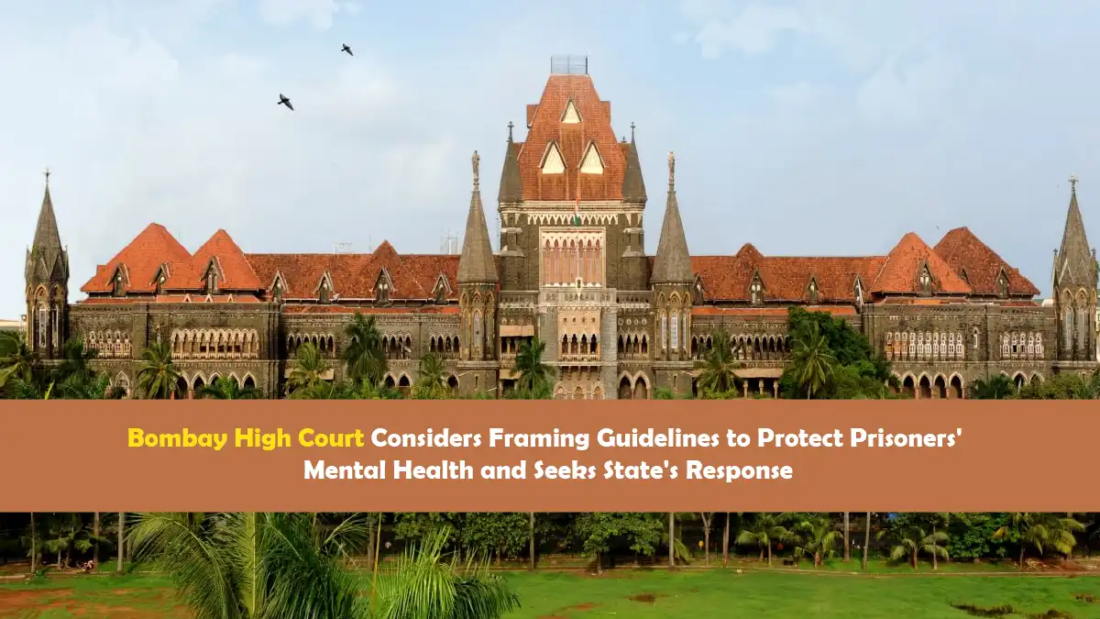Facts of the Case
The case at hand involves a plea brought before the Bombay High Court by ‘A’, the mother of X, a death row convict in the notorious Kopardi gang rape case of 2016. X, along with two others, was convicted and sentenced to death for the brutal rape and murder of a 14-year-old girl in Kopardi village, Ahmednagar district, Maharashtra. The incident not only led to a highly publicized trial but also triggered widespread protests across the state due to its communal undertones, as the victim belonged to the Maratha community and the accused were from the Dalit community.
While serving his sentence at Yerwada Central Jail, X committed suicide. His mother filed a plea alleging that the prison authorities had neglected his mental health, which ultimately led to his tragic demise. The plea contended that despite X’s evident mental health issues, no appropriate care was provided by the authorities, as mandated by various national and international legal frameworks.
Contentions of the Petitioner
The petitioner argued that the State of Maharashtra, through its prison administration, failed to fulfil its duty as parens patriae—a principle where the state must act as the guardian of those who are unable to care for themselves, such as prisoners. She submitted that the prison authorities were legally obligated to ensure the mental well-being of incarcerated individuals, especially those on death row, who are particularly vulnerable to mental health issues.
To support her contentions, the petitioner submitted a comprehensive compilation of documents, including:
Extracts from the Mental Healthcare Act, 2017, which outlines the rights of persons with mental illness and the duties of the state in providing appropriate mental health care.
The Mental Healthcare (Rights of Persons with Mental Illnesses) Rules, 2018, which provide additional regulatory frameworks for the implementation of the Act.
A report from the National Institute of Mental Health and Neurosciences (NIMHANS) addressing the mental health crisis among prisoners, particularly during the COVID-19 pandemic.
Guidelines from the National Human Rights Commission (NHRC) on the prevention of suicide in prisons and the legal and human rights implications of such incidents.
Excerpts from the Model Prison Act, 2023, and the Model Prison Manual, 2016, which set out standards for the treatment of prisoners.
The United Nations Standard Minimum Rules for the Treatment of Prisoners, commonly known as the Nelson Mandela Rules, which provide internationally recognized guidelines for the humane treatment of prisoners.
Contentions of the Respondent
The State of Maharashtra, represented by the Additional Public Prosecutor was directed by the court to respond to the petitioner’s claims. The state was asked to explain the procedures currently in place for treating prisoners with mental health issues and whether psychiatric care was available to those who needed it. The State was further instructed to file an affidavit detailing the measures taken to ensure that prisoners’ mental health does not deteriorate while they are incarcerated. The court emphasized that the State could not deny prisoners the correct treatment for their health issues, including mental health.
Court’s Observation
The division bench of Justices Revati Mohite-Dere and Prithviraj Chavan expressed deep concern over the rising incidents of suicide among prisoners in Maharashtra’s jails. The court highlighted the urgent need for the state to address the mental health of prisoners, noting that prisoners are in the custody of the state, which must ensure their well-being, including mental health care.
The court also pointed out that the issue of mental health in prisons is not confined to India alone and suggested that the state consider how other countries manage the mental health of prisoners. The bench underscored the importance of the larger issue at stake, indicating that it was prepared to issue guidelines to ensure the mental health of prisoners once the state provided sufficient material on the matter.
Court’s Decision
The Bombay High Court granted the State of Maharashtra four weeks to file an affidavit providing detailed instructions on how it plans to prevent the deterioration of prisoners’ mental health. The court intends to use this information to formulate guidelines aimed at safeguarding the mental well-being of prisoners. The case is ongoing, with the court awaiting the state’s response before making a final ruling.
 Cart is empty
Cart is empty 

